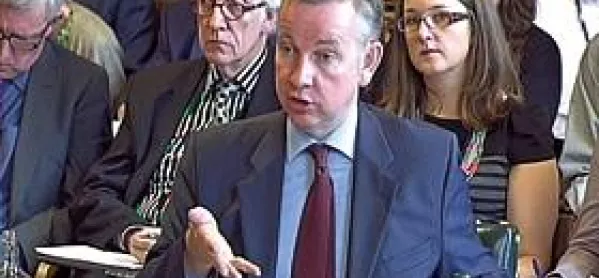Heads turn to the law over grading scandal

A landmark legal challenge to this summer’s GCSE English results is expected to begin next week as figures show that already disadvantaged pupils have been disproportionately hit by controversial grading changes.
Leading barristers have told a consortium of teaching unions, local authorities and academies that they are “optimistic” that judges would quash grades from June that are dramatically out of line with those awarded in January.
The news came as Ofqual was dealing with the fallout from letters, revealed online by TES this week, showing that the regulator forced the Edexcel exam board to change grades that examiners believed were “fair” and backed by “compelling evidence”.
MPs are extending their investigation into the affair. But education secretary Michael Gove has given Ofqual his full backing and ruled out commissioning a dedicated independent inquiry or ordering a regrading.
Legal action - looking increasingly likely to be schools’ and pupils’ only means of redress - is expected to focus on claims that the grading decisions were an “abuse of public power” and that they breached the Equality Act.
Simon Thomas, a solicitor for heads’ union the NAHT, said it would be the first large-scale legal challenge to exam grades. The NUT, Leeds and Lewisham councils and the Association of School and College Leaders are among the other organisations involved.
Mr Thomas said grounds for a judicial review “would be the extent and magnitude of the change (in grades) and the fact that it was introduced without notifying or consulting schools”.
“We would say that would amount to an abuse of public power and conspicuous unfairness and therefore from a legal point of view is irrational and unlawful,” he added.
A detailed analysis of thousands of pupils, whose schools say they missed out on crucial predicted C grades because of a shift in grade boundaries, is expected to be the basis for a parallel challenge under the Equality Act. It suggests the pupils affected are twice as likely to speak English as an additional language compared with all state secondary pupils and a third more likely to have special educational needs.
David Triggs, chief executive of the Academies Enterprise Trust, which compiled the data and is part of the consortium, said: “Many of these pupils will not come back to school. These grades will affect them for the rest of their lives.”
The consortium is expected to start its legal challenge next week with a formal approach to Ofqual.
Mr Gove told the Commons Education Select Committee on Wednesday that he would encourage individual pupils or schools who believed their grades were unfair to ask for a re-mark. But he quickly added that he did not want to “generate false hope”.
The education secretary said he was happy with Ofqual’s position that there was nothing else it could have done about January grades that it now admits were “too generous”.
The AQA exam board, which has suffered most complaints about grades, told TES that most of its GCSE English meetings had been attended by an “Ofqual scrutineer”.
Ofqual chief regulator Glenys Stacey told MPs that her staff had given the qualification particular attention and “didn’t see anything at any of those meetings that meant that we had to take further action”. It “simply wasn’t possible” to ensure that January grades were correct at the time because of a lack of statistical information, she said.
Ms Stacey revealed that Ofqual had written to Welsh exam board WJEC, as well as Edexcel, about its proposed grades for the English GCSE. WJEC was this week ordered by the Welsh government to regrade pupils in Wales who sat the exam. But most of the candidates who took its qualification are in England and their grades will stand. Both its regulators - Ofqual and the Welsh government - had previously jointly instructed it to adjust “awards downwards at grade C”, WJEC pointed out.
Mr Gove said Welsh education minister Leighton Andrews had made a “terrible mistake” and devalued GCSEs by ordering the re-mark. The education secretary joined Ofqual chair Amanda Spielman in accusing Mr Andrews of trying to compensate for the underperformance of Welsh pupils.
But Mr Andrews said Mr Gove was attempting to “turn the deepening crisis in England into a political spat with Labour in Wales”. Heads’ leaders argue that pupils in England had tended to “cash in” units in the modular qualification earlier than their Welsh counterparts, using up what they believe was effectively a “quota” of C grades.
Off the mark?
Heads’ concerns over the English GCSE grades: Photo credit: Alamy Original headline: `Abuse of public power’: heads turn to the law over grading scandal
Keep reading for just £1 per month
You've reached your limit of free articles this month. Subscribe for £1 per month for three months and get:
- Unlimited access to all Tes magazine content
- Exclusive subscriber-only stories
- Award-winning email newsletters



